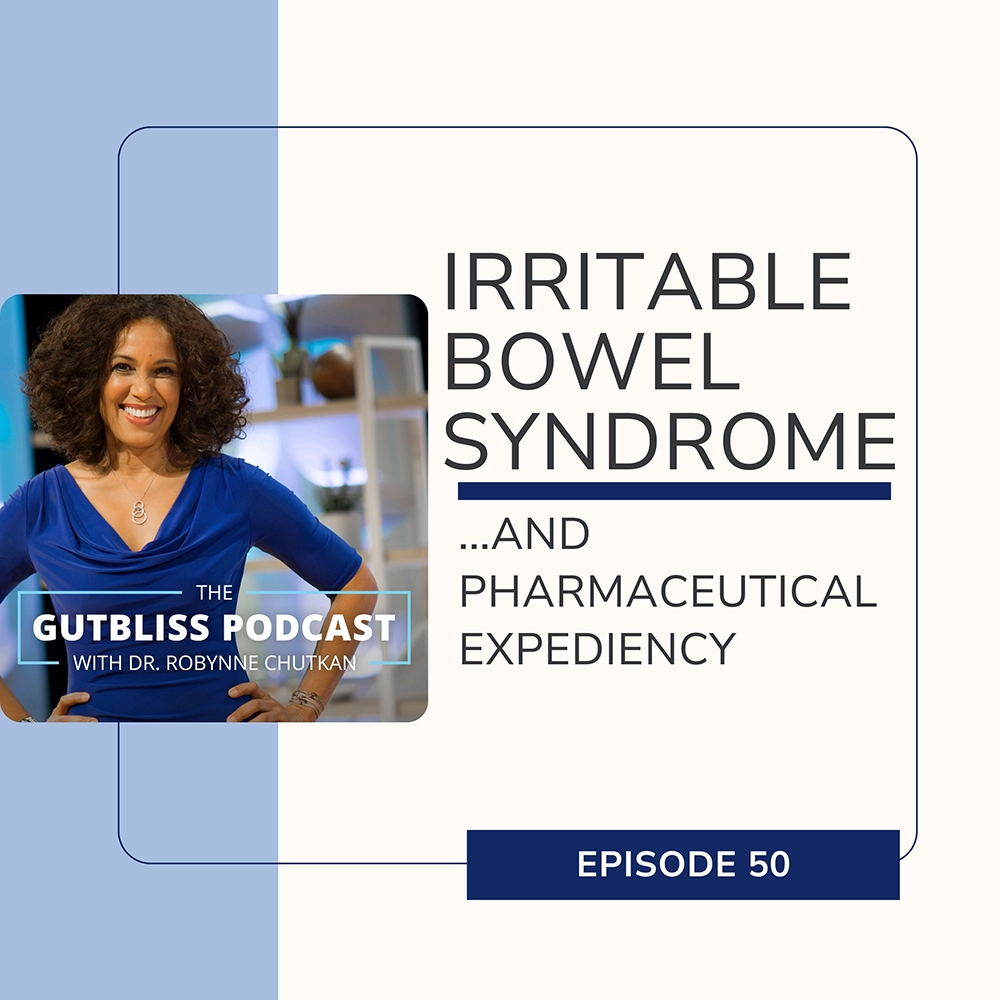We’re kicking off today’s show with a question from someone in our Gutbliss community:
“I’m a healthy middle-aged woman and I’ve recently experienced constipation. I exercise 5 to 6 times per week. I drink about eight glasses of water a day. I eat a fiber-rich diet with lots of fruits and vegetables. I really haven’t changed anything. I’m not taking any medication except for some magnesium at night. I’ve had my thyroid checked. I had a colonoscopy in the last year. It showed a redundant colon but otherwise it was normal so it’s a mystery to me why this change has occurred. I have a parent with Parkinson’s and the reason I have this question for you is that I’ve seen some research on the connection between the gut and Parkinson’s – specifically on constipation and Parkinson’s. So I’m wondering is it possible that this new onset of constipation could be an early warning sign, and if so, is there anything I should be doing to investigate?”
In 1817 a British physician published a paper describing patients with weakness and trembling that started in the hands and progressed throughout their entire body so that simple functions like walking, eating, and swallowing eventually become impossible. He called this illness “shaking palsy”, although we refer to it today as Parkinson’s disease, in honor of Dr James Parkinson – the physician who first described it. More than 200 years later we still don’t know what causes Parkinson’s disease, but we know our genes play a role in only about 10% of cases. This isn’t really a genetic disease.
So what I can tell my listener is that she’s unlikely to have inherited Parkinson’s from her parent, because only about 1 in 10 people have a genetic connection, so that’s really good news. I also wouldn’t be too worried about the constipation because constipation is way more common than Parkinson’s, and her gastroenterologist told her after her colonoscopy that she had a redundant colon, which is a common cause of constipation (for more on that check out episode 3 of The Gutbliss Podcast – the Voluptuous Venus Colon). She’s also in that perimenopausal age group where anatomical and hormonal changes can definitely make you more constipated. That pelvic floor starts to shift, and estrogen levels start to fluctuate. And all of a sudden, you are super constipated.
But her question that I’m going to be answering next, is whether or not there may be a connection between what’s going on in the gut and what’s going on in the brain in Parkinson’s, and what should we be doing to investigate that? Coming up – the “gut first” theory.
Parkinson’s is considered a neurological disease because it involves damage to parts of the brain that control movement. There’s a loss of nerve cells that make dopamine in that part of the brain, and dopamine regulates movement. But the million dollar question is what causes the damage to the brain in the first place? One clue comes from Dr Parkinson himself two centuries ago. He reported that some patients with “shaking palsy” were extremely constipated, and when their constipation was treated and improved, so did their neurological symptoms. Constipation is in fact, one of the most common symptoms with this disease: about 2/3 of all patients diagnosed with Parkinson’s have constipation, and another clue: the constipation usually starts before their neurological symptoms. Decades before in some cases.
It turns out Parkinson’s isn’t just a brain disease. It’s also a gut disease. And the changes in the gut can occur before the changes in the brain. Leading to what we now call the “gut first” theory – proposed about 20 years ago, by a German scientist, Dr Braak, who did autopsies in patients with Parkinson’s. What he was looking for in those autopsies is an abnormally folded protein called alpha-synuclein – which is the hallmark finding in the brain in people with Parkinson’s. But nobody knew where those proteins in the brain were coming from. We know that the brain is connected to the gut through nerves in the body like the vagus nerve and so Dr Braak decided to look in the digestive tract to see if the proteins might be originating there. And they were! He found clumps of alpha-synuclein in the gut – in the stomach and other parts of the digestive tract. A 2016 studyanalyzed tissue samples from the gastrointestinal tract of 39 people who were later diagnosed with Parkinson’s disease. Twenty-two had alpha-synuclein present in their gut samples, as much as 20 years before their actual diagnosis. And studies in mice confirmed that alpha-synuclein can indeed travel from the gut to the brain. They injected the protein into the stomach and small intestine of healthy mice and, after one month, saw increased levels in the brainstem, which then spread throughout the midbrain and cortex, mirroring what Braak saw in his autopsy subjects. At 10 months, clumps of alpha-synuclein riddled the entire brain and the mice – they developed signs of Parkinson’s.
So now that researchers confirmed that alpha synuclein was originating in the gut and it could travel to the brain and produce Parkinson’s, the next question was how and why does this abnormal protein form in the gut in the 1st place? To answer that question, we have to look deeper than just the anatomy of the digestive tract. We have to look at the microscopic community in the gut – the trillions of microorganisms that reside there known as the microbiome. The next step was to look at the gut microbiome in people with Parkinson’s and compare it to healthy people. And that’s exactly what a study published in the journal Nature Communications did: they looked at the gut microbiome in about 500 people with Parkinson’s. And they identified 85 different species of bacteria in the gut that were associated with Parkinson’s: some species were increased, and others were decreased. Some of the species that were increased were linked to clumping of the protein alpha-synuclein. And some of the ones that were decreased were involved in gut motility, which explains why constipation is such a common problem for people with Parkinson’s. Another type of bacteria that was present in lower than normal levels was a species that protects the brain against toxins– explaining the brain damage that we see in Parkinson’s.
So given these significant findings linking what’s going on in the gut microbiome in Parkinson’s to what’s going on in the brain, it makes sense that we’re now looking at methods to try and alter the gut microbiome to see if we can alter the brain. One recent study from Belgium replaced the gut bacteria in people with Parkinson’s with gut bacteria from healthy donors via FMT – fecal microbiota transplantation, otherwise known as a poo transplant. After 12 months, the FMT group saw significant improvements in their symptoms, compared to the placebo group – and they also had less constipation. While this study suggests that altering the gut microbiome with a stool transplant may have long-lasting benefits in Parkinson’s, it’s important to note that it took a full year for the group who received the FMT to see significant improvement. This is similar to what we’ve seen in other studies with FMT for autoimmune diseases like Crohn’s and ulcerative colitis. This is not a “one and done” situation. Most of these chronic conditions will require FMT at least twice a week for prolonged periods of time – and sometimes indefinitely. FMT can be a really effective way to alter someone’s gut microbiome; but it has a pretty high yuck factor.
I love stool – but I’m not that excited about the prospect of someone else’s stool in my body. So what’s another really effective way to alter the gut microbiome besides a stool transplant? Changing your diet – arguably the most effective way to change the ecosystem in your gut! A large Harvard study on Parkinson’s showed that people who ate a lot of high fiber plant foods, including fruits, vegetables, beans, and whole grains, had a lower risk of developing Parkinson’s disease. And you don’t have to be vegan to benefit. People who ate lean protein and small amounts of saturated fat were also in the low risk group – as long as they were eating plenty of high fiber plant foods. Another study that looked at diet and the gut microbiome in patients with Parkinson’s disease also published this year in the journal Nature found that a diet high in fiber, and low in added sugar has a positive influence on PD risk and progression by decreasing neuroinflammation. They found a reduction in the levels of inflammatory bacteria that are usually increased in PD patients. Furthermore, the high fiber/low sugar diet increased the amounts of protective anti-inflammatory bacteria. Their conclusion was that the previously reported microbiome abnormalities in PD are likely due, at least in part, to dietary differences between PD patients and control subjects.
Why is this important? Because Parkinson’s disease is the second most common age-related neurodegenerative disease (2nd to Alzheimer’s), and it’s getting more and more common each year. According to the world health organization rates of Parkinson’s disease have doubled in the last 25 years. Now, this is a disease that primarily affects older people, particularly people over 65, and older people are definitely living longer. But it’s not just age that’s the problem here. It’s the fact that our health span is not overlapping with our lifespan, so we’re living longer, but in our old age we are often extremely unhealthy. We know that the health of your microbiome is one of the most important predictors of how you age. And that includes not just physical characteristics of aging, like mobility and frailty, but also how our brains are aging. Coming up: some good news, and an answer to our listener’s question about whether there was anything she could do to investigate her risk for Parkinson’s.
Currently, there isn’t a specific test to diagnose Parkinson’s disease. The diagnosis is made based on your medical history, a review of your symptoms, and a neurological and physical exam. What this means is we can only diagnose Parkinson’s when it’s pretty clear you already have it. And here’s the problem with that: early intervention is key: those diet studies I was talking about showed that in early Parkinson’s, the microbiome is still modifiable by diet. Once you get to more advanced stages, the microbiome is much less responsive to dietary changes. So early diagnosis and intervention is key. Ideally, we want to diagnose people who are at high risk and intervene so that they never actually develop Parkinson’s disease. And that’s where Dr Braak and his important discoveries about the abnormal protein in the brains of people with Parkinson’s – alpha synuclein – comes in.
Researchers are studying a Parkinson’s test that may be able to detect the disease before symptoms begin. It’s called an alpha-synuclein seed amplification assay. In a 2023 study, researchers tested the spinal fluid of more than 1,000 people to look for clumps of alpha-synuclein. The test accurately identified people with Parkinson’s disease 87.7% of the time – and it was also pretty good at detecting people who were at high risk. So that’s very exciting. But here’s something even more exciting – a recent study asked the question: since Parkinson’s seems to develop in the gut first, what about looking at stool samples to see if we can detect elevated levels of alpha synuclein there? And that is exactly what researchers did. And what they found was that although in its current state, the test was not great at detecting Parkinson’s, it was really good at detecting a condition that is a precursor of Parkinson’s disease. A condition called Isolated Rapid Eye Movement Sleep Behavior Disorder (iRBD), that is strongly associated with Parkinson’s disease. 75% of people with iRBD will develop a condition like Parkinson’s disease within 12 years.
So what advice would I give our listener about testing? Although alpha-synuclein seed amplification assay may be available through some doctors offices, it’s not yet a standard of care test and there are still lots of questions about how to interpret the results. It’s going to take more research before this test is ready for prime time. So for now, there’s no recommendation for any sort of blood test or brain scan or anything like that. But I would recommend that she pay attention to any symptoms, like problems with coordination or tremors. And again I want to reassure her that the overwhelming likelihood is that she is not going to develop this disease. Plus, she’s doing all the right things with her diet and lifestyle. She eats a high fiber diet; she drink lots of water; she exercises regularly – those are all so important. The one thing I would tell her is to watch out for her sugar intake – make sure she is not over indexing on the sugar.
I want to leave you with 3 takeaways about the gut first theory and Parkinson’s disease:
1. Your diet is the most powerful tool for changing your microbiome. And if you’re eating the wrong foods, those changes that are going to develop in your gut microbiome can cause neuroinflammation – putting you at risk for diseases like PD. What kinds of diet increase your risk: Diets low in fiber and high in added sugar are strongly associated with the changes in the gut microbiome we see in people with Parkinson’s
2. Early intervention is key: in early disease, the microbiome is still modifiable by diet. But in more advanced stages of Parkinson’s, the microbiome is much less responsive to dietary changes. So start now!
3. Testing for alpha synuclein protein not in the brain or the spinal fluid, but in the gut, might be the next big frontier for early detection of neuroinflammation that can be an early warning sign of diseases like Parkinson’s.
So that’s it for this episode of the Gutbliss Podcast on the Gut-First theory and Parkinson’s disease – the second episode in my series on the gut brain connection.
Coming up next week on the Gutbliss Podcast, we’re going to be tackling another neurologic condition that is becoming more and more common every day: autism spectrum disorder – what’s the gut got to do with it?!









